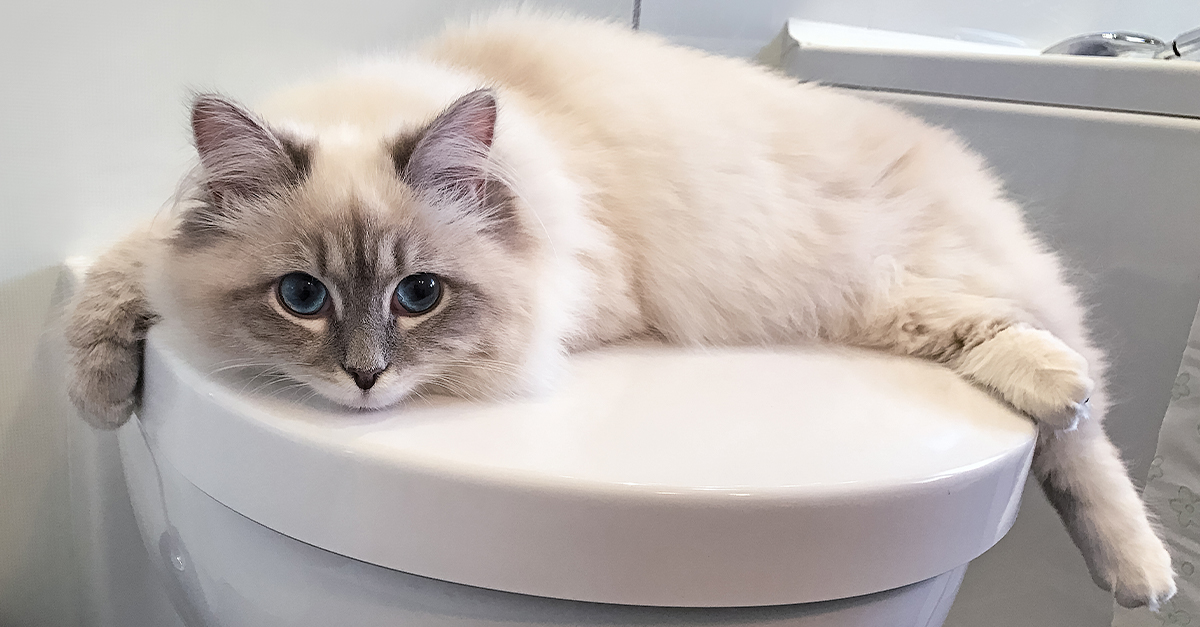Why Flushing Cat Poop Down Your Toilet Is Harmful - Tips for Correct Disposal
Why Flushing Cat Poop Down Your Toilet Is Harmful - Tips for Correct Disposal
Blog Article
Presented here below you can find a good deal of first-rate information and facts when it comes to How to Dispose of Cat Poop and Litter Without Plastic Bags.

Intro
As cat proprietors, it's vital to bear in mind exactly how we get rid of our feline buddies' waste. While it may seem hassle-free to flush pet cat poop down the toilet, this method can have harmful effects for both the atmosphere and human wellness.
Environmental Impact
Purging cat poop presents hazardous virus and parasites right into the water system, presenting a substantial risk to marine communities. These contaminants can negatively affect marine life and concession water top quality.
Health Risks
Along with ecological concerns, purging feline waste can likewise position health threats to people. Pet cat feces may contain Toxoplasma gondii, a bloodsucker that can create toxoplasmosis-- a possibly extreme ailment, especially for expecting women and people with damaged body immune systems.
Alternatives to Flushing
The good news is, there are more secure and much more responsible methods to throw away cat poop. Take into consideration the complying with choices:
1. Scoop and Dispose in Trash
The most usual method of disposing of feline poop is to scoop it right into a naturally degradable bag and throw it in the trash. Make certain to use a dedicated litter scoop and throw away the waste promptly.
2. Usage Biodegradable Litter
Choose naturally degradable cat clutter made from materials such as corn or wheat. These litters are eco-friendly and can be securely taken care of in the trash.
3. Hide in the Yard
If you have a lawn, take into consideration hiding pet cat waste in an assigned location far from vegetable gardens and water sources. Make certain to dig deep adequate to avoid contamination of groundwater.
4. Set Up a Pet Waste Disposal System
Invest in a pet dog waste disposal system particularly made for cat waste. These systems utilize enzymes to break down the waste, decreasing smell and ecological impact.
Verdict
Accountable family pet ownership prolongs beyond supplying food and sanctuary-- it likewise includes appropriate waste management. By refraining from flushing cat poop down the toilet and opting for different disposal techniques, we can reduce our ecological impact and safeguard human health.
Why You Should Never Flush Cat Poop Down the Toilet
A rose by any other name might smell as sweet, but not all poop is created equal. Toilets, and our sewage systems, are designed for human excrement, not animal waste. It might seem like it couldn’t hurt to toss cat feces into the loo, but it’s not a good idea to flush cat poop in the toilet.
First and foremost, assuming your cat uses a litter box, any waste is going to have litter on it. And even the smallest amount of litter can wreak havoc on plumbing.
Over time, small amounts build up, filling up your septic system. Most litter sold today is clumping; it is made from a type of clay that hardens when it gets wet. Ever tried to scrape old clumps from the bottom of a litter box? You know just how cement-hard it can get!
Now imagine just a small clump of that stuck in your pipes. A simple de-clogger like Drano isn’t going to cut it. And that means it’s going to cost you big time to fix it.
Parasitic Contamination
Believe it or not, your healthy kitty may be harboring a nasty parasite. Only cats excrete Toxoplasma in their feces. Yet it rarely causes serious health issues in the cats that are infected. Most people will be fine too if infected. Only pregnant women and people with compromised immune systems are at risk. (If you’ve ever heard how women who are expecting are excused from litter cleaning duty, Toxoplasma is why.)
But other animals may have a problem if infected with the parasite. And human water treatment systems aren’t designed to handle it. As a result, the systems don’t remove the parasite before discharging wastewater into local waterways. Fish, shellfish, and other marine life — otters in particular — are susceptible to toxoplasma. If exposed, most will end up with brain damage and many will die.
Depending on the species of fish, they may end up on someone’s fish hook and, ultimately on someone’s dinner plate. If that someone has a chronic illness, they’re at risk.
Skip the Toilet Training
We know there are folks out there who like to toilet train their cats. And we give them props, it takes a lot of work. But thanks to the toxoplasma, it’s not a good idea.

I have been very taken with How to Dispose of Cat Poop and Litter Without Plastic Bags and I'm hoping you appreciated the new blog post. For those who enjoyed reading our article plz remember to pass it around. Thanks a lot for your time invested reading it.
Visit Report this page